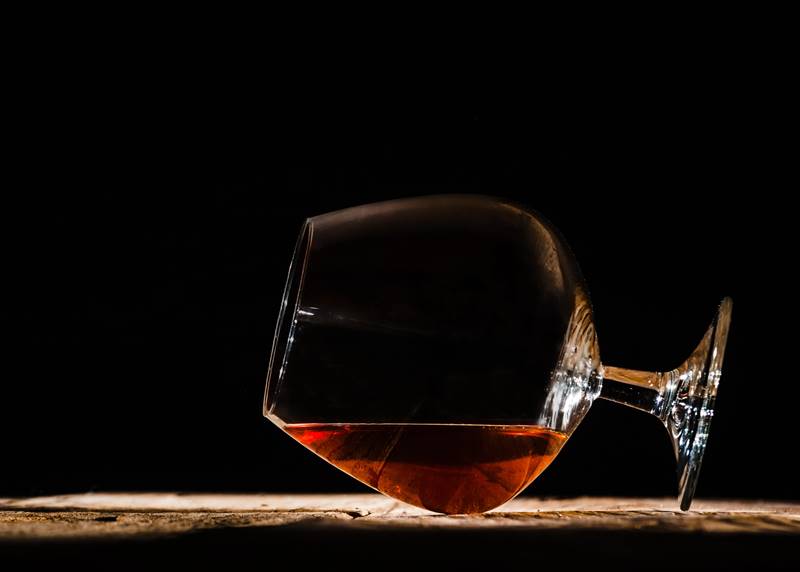
In the rolling hills of southwestern France, the tranquil vineyards that give rise to some of the world’s most renowned spirits — Cognac and Armagnac — are bracing for impact. A looming trade war between the European Union and China could severely disrupt their delicate balance, threatening not just exports but the very lifeblood of these historic industries.
The conflict centers on the European Union’s move to consider new tariffs on Chinese-made electric vehicles (EVs). Should the EU follow through, China has indicated it will retaliate by slapping punitive tariffs on several key European products, including luxury spirits. For Cognac and Armagnac producers, whose brands rely heavily on overseas markets, especially in Asia, this spells trouble. According to the Bureau National Interprofessionnel du Cognac (BNIC), China alone accounts for a quarter of total Cognac sales. An escalation could potentially put this vital revenue stream in jeopardy.
The roots of this standoff lie in concerns about market fairness. European manufacturers argue that Chinese EVs, heavily subsidized by their government, are flooding the market at unsustainable prices, creating an uneven playing field for European automakers. In response, the European Commission is considering countervailing tariffs — a measure that has triggered a swift and sharp warning from China.
Last month, China’s Ministry of Commerce (MOFCOM) announced that it had conducted its own investigation and concluded that some European producers, including brandy manufacturers, were selling below cost in the Chinese market. While no immediate tariffs were implemented, the threat looms large, with industry insiders suggesting duties could reach as high as 34.8% on certain European alcoholic beverages.
The implications for Cognac and Armagnac producers are stark. Exporting to China has become a cornerstone of the French brandy sector’s growth strategy over the past two decades. Any disruption to this trade pipeline could lead to catastrophic losses. With a global reputation and a high price point, Cognac’s profitability depends on a robust international market. The BNIC has warned that a sudden tariff hike would lead to plummeting sales, putting pressure on an industry already grappling with declining domestic consumption and rising production costs.
Florent Morillon, President of the BNIC, recently spoke out, calling the potential tariffs “devastating” and warning that the fallout could extend beyond short-term financial losses. “This isn’t just about numbers. If we lose China, we lose a market that is difficult, if not impossible, to replace,” he stated. Moreover, the shockwaves could ripple through the local economy, where generations of families depend on these vineyards and distilleries for their livelihood.
The gravity of the situation has not gone unnoticed in the region itself. In the picturesque town of Cognac, tractors rumbled through the streets in protest on September 17, an unusual sight in a community more accustomed to quiet cooperation than public dissent. Growers and distillers gathered to express their frustration at what they perceive as an EU policy that risks sacrificing their industry to protect automotive interests.
The BNIC has rallied support, calling on the French government to take urgent action. They have two main demands: first, that France requests a delay on the EU’s vote regarding Chinese EV tariffs, and second, that the European Commission actively pursues a diplomatic solution to prevent China from retaliating against French spirits.
These demands were communicated directly to French Prime Minister Michel Barnier during a tense meeting earlier this month. Barnier, who has a track record of managing high-stakes negotiations within the EU, hinted that he might visit the region in person to discuss a strategic response with local stakeholders.
The risk of losing the Chinese market comes at a critical time for Cognac producers, who are in the midst of the harvest season. Many have already scaled back production due to an oversupply problem and weaker demand in Europe and the United States. For these producers, the timing could not be worse. Adding new tariffs on top of existing challenges would create a perfect storm that could potentially destabilize the industry for years to come.
For an industry rooted in centuries-old traditions, this uncertainty is deeply unsettling. While Cognac and Armagnac have weathered wars, revolutions, and economic downturns, modern global trade disputes pose a different kind of threat. As one local winemaker noted, “We’ve always been able to count on our quality to see us through. But now it’s not about the quality of what we produce. It’s about forces beyond our control.”
Beyond economic figures, the battle over Cognac strikes at the heart of France’s cultural heritage. Cognac, with its storied history and time-honored production methods, is more than just a drink — it’s a symbol of French craftsmanship and sophistication. Losing ground in key markets like China would not only affect revenue but also diminish the global stature of these brands, some of which have been producing for centuries.
The situation highlights the unintended consequences of geopolitical tensions, where niche industries can become collateral damage in larger economic battles. For Cognac and Armagnac producers, the question is no longer just about protecting profits but about ensuring their very survival.
As the clock ticks down to the EU’s decision, all eyes are on Brussels. A definitive vote on Chinese EV tariffs is expected in the coming days, and French brandy producers can do little but watch and wait. While the EU deliberates, Cognac’s vineyards stand at a crossroads. The potential imposition of Chinese tariffs would reshape their business landscape in ways they are only beginning to grasp.
In this precarious moment, the industry’s fate hangs in the balance. Whether Cognac continues to flow freely into Chinese glasses — or is squeezed out of one of its most lucrative markets — will depend on the outcome of a trade war that began far beyond the vineyards of southwestern France.








